Must Reads: He voted for Trump. Now he and his wife raise their son from opposite sides of the border
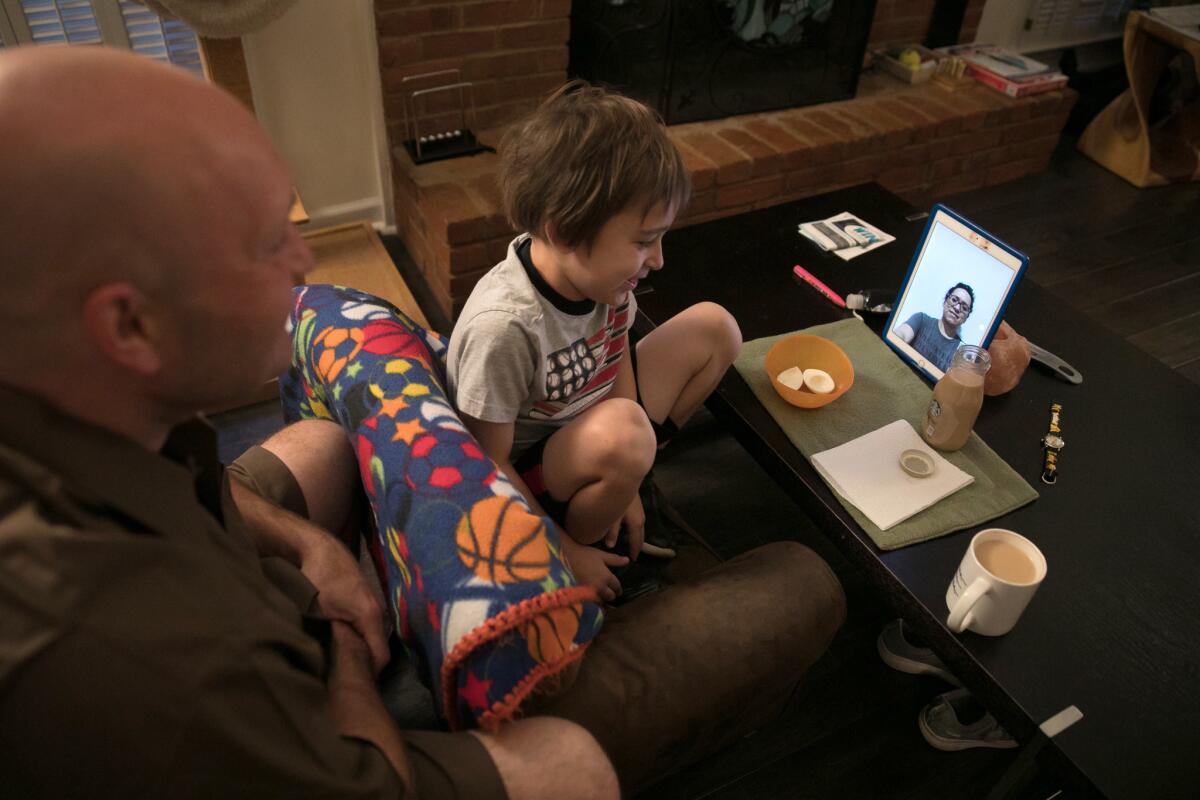
- Share via
She is there when he wakes up, telling him she loves him and helping him coax their son, Ashton, to finish his Honey Nut Cheerios before the school bus whisks him to kindergarten.
She is there when he is at work delivering UPS packages, and she’s there to greet their 6-year-old when he gets home from school, bounces up and down the stairs, and pulls the arms and legs of his Stretch Force Fireman.
Yet Jason Rochester’s wife, Cecilia, is not really there.
Her dark-brown eyes gaze out of a slick iPad screen and her voice floats through a tiny hole in the side of the machine.
I can’t sleep. I keep waking up every hour.
What are you wearing today, Ashton? Shorts or pants?
Papi, I want to see you. Can you stay in front of the camera?... Come on.
Forced apart by President Trump’s stringent immigration policies, Jason Rochester and Cecilia Gonzalez have spent the last 16 months raising their 6-year-old son from opposite sides of the U.S.-Mexico border.
Like so many separated families, the couple have experienced the years of Trump’s presidency as a grim journey of restless nights and tearful goodbyes. But unlike many in their predicament, Jason voted for Trump.
He knew Trump planned to get tough on immigration — building a wall and deporting drug dealers, rapists and killers. He never imagined anyone would consider his sweet stay-at-home wife a “bad hombre.”
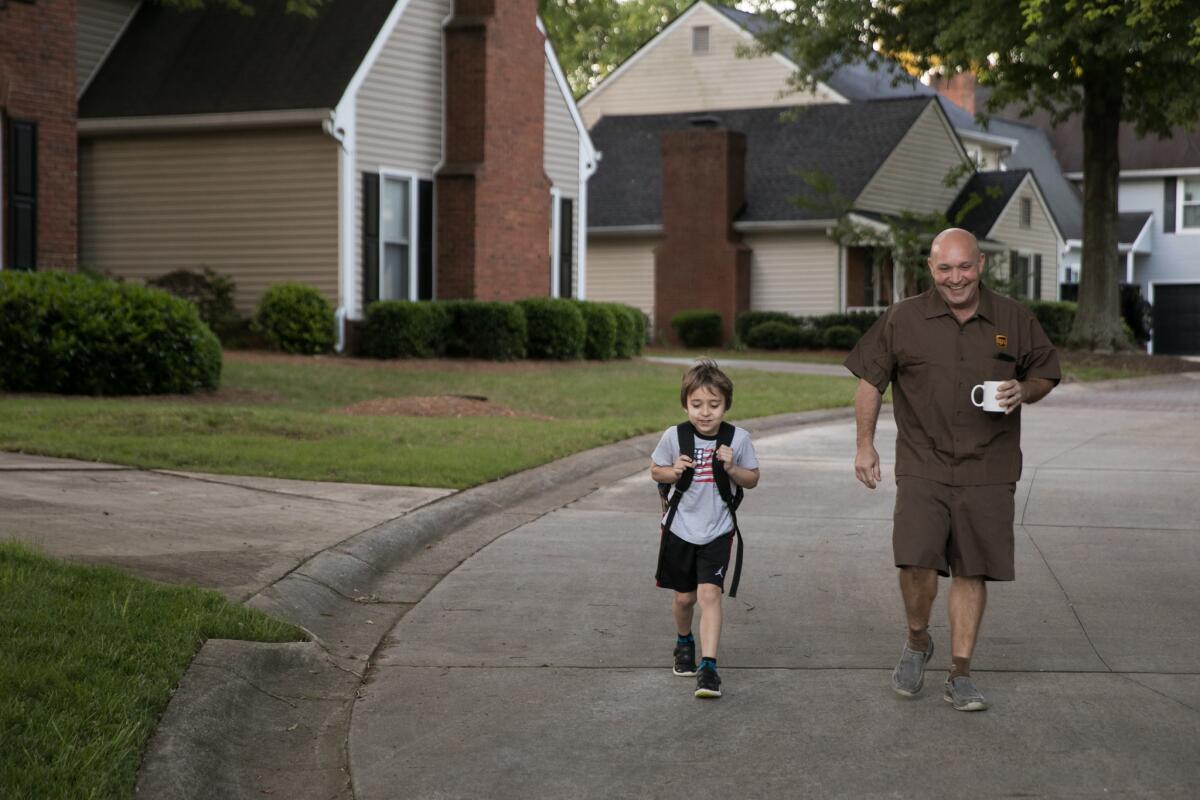
A white delivery driver born and raised in the tiny Alabama town of Smiths Station, Jason, 43, is a laid-back evangelical Christian, and the kind of man who takes the time to ask a customer how her baby carriage turned out and coo over its color.
About 15 years ago, a few years after he moved to the northern suburbs of Atlanta, he met Cecilia at work as he began a shift unloading packages.
She was petite — at 5-foot-4, just an inch shorter than him, with big brown eyes. He was instantly smitten.
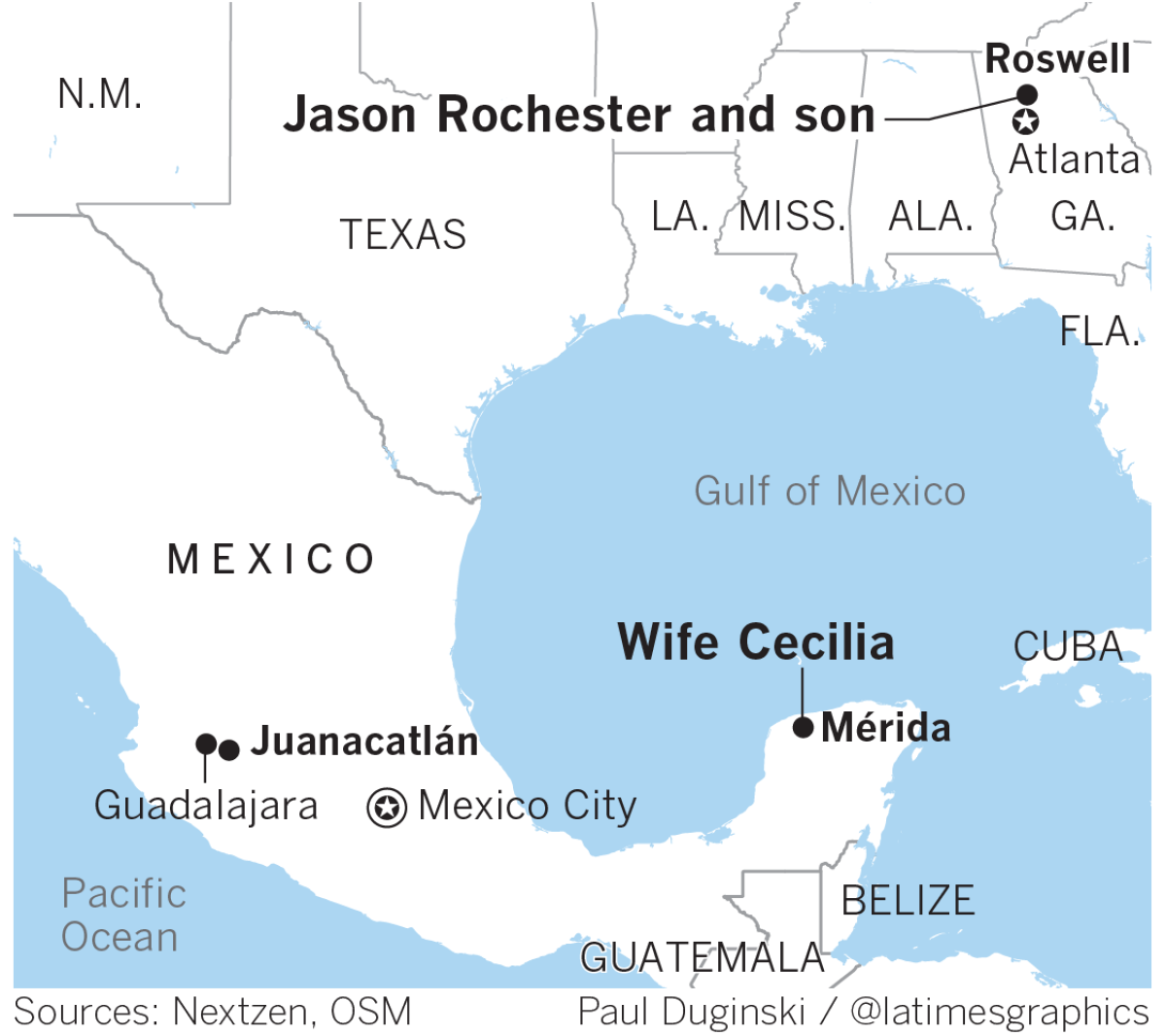
Whenever he spotted her tugging at a heavy box, he would haul the package off the semitrailer.
Day after day, they sat together on their 15-minute breaks, sharing pizza and chicken wings. Sometimes he would bring her dandelions from the side of the road. Occasionally she let him rub her shoulders.
But she didn’t offer much about her background — all he knew was she was from somewhere near Guadalajara, Mexico — and after two years he had failed to persuade her out on a date.
Eventually, a Mexican co-worker told him: “She’s illegal.”
He didn’t care.
When they eventually started dating, Cecilia told him that she had crossed the border into California several times in her early 20s. Immigration officials had caught her twice, first after crossing in Calexico and then in San Ysidro.
“Why would you want to be with me, knowing I’m like that?” she asked.
“I love you for who you are,” he told her.
After a year of dating, Jason proposed. They got married in his uncle’s backyard. Then came Ashton. Cecilia gave up her job cleaning hotels and settled into life as a stay-at-home mom in this affluent Atlanta suburb, making Ashton pancakes and grits for breakfast and taking him for strolls to the local park.
“You’re not a criminal,” Jason tried to reassure her. “You don’t have to worry about it.”
Jason had faith that the Trump administration would distinguish between good and bad immigrants. Cecilia had never even gotten a traffic ticket.
“In my mind, bad hombres were people who did bad things,” he said. “We figured that he was going to get rid of the people we didn’t want.”
So he voted for Trump, assuring himself and his wife that the ultimate decision was in God’s hands.
A few days after taking office, Trump signed an executive order that expanded Immigration and Customs Enforcement’s focus to most of the 11 million immigrants in the U.S. illegally, regardless of whether they had a criminal record.
From the beginning, Cecilia eyed Donald Trump warily.
It was clear he never had anything good to say about immigrants, at least not anyone from her country.
“When Mexico sends its people, they’re not sending their best,” Trump said in 2015 when he announced his presidential bid. “They’re sending people that have lots of problems.… They’re bringing drugs. They’re bringing crime. They’re rapists. And some, I assume, are good people.”
Jason didn’t like much of what Trump said on immigration either.
An independent voter who leans conservative, he voted for Barack Obama in 2008, hoping he would fix the immigration system and make it easier for Cecilia to pursue citizenship.
But this time, immigration was not his main concern.
Jason listened to conservative Christian radio, and his favorite talking heads, like James Dobson, the evangelical psychologist who founded Focus on the Family, convinced him that electing Trump would lead to a Supreme Court that would overturn Roe vs. Wade, the landmark 1973 decision legalizing abortion.
Cecilia urged him to pay attention to Trump’s vows to build a wall along the southern border and amass a huge “deportation force.”
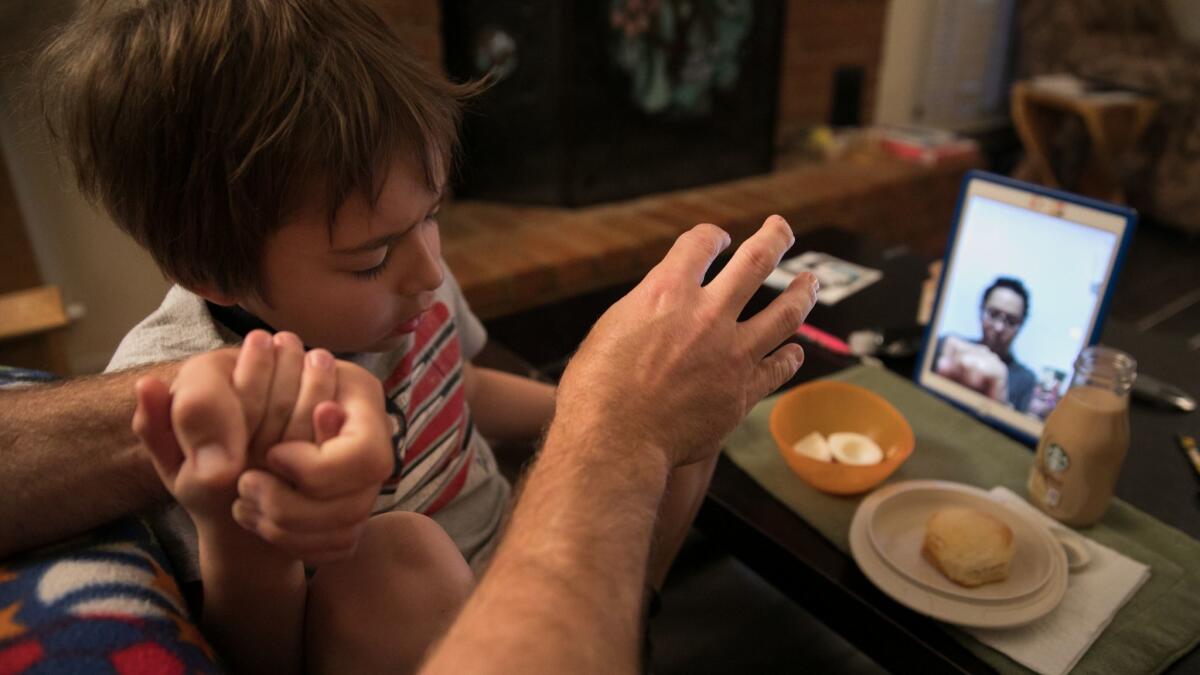
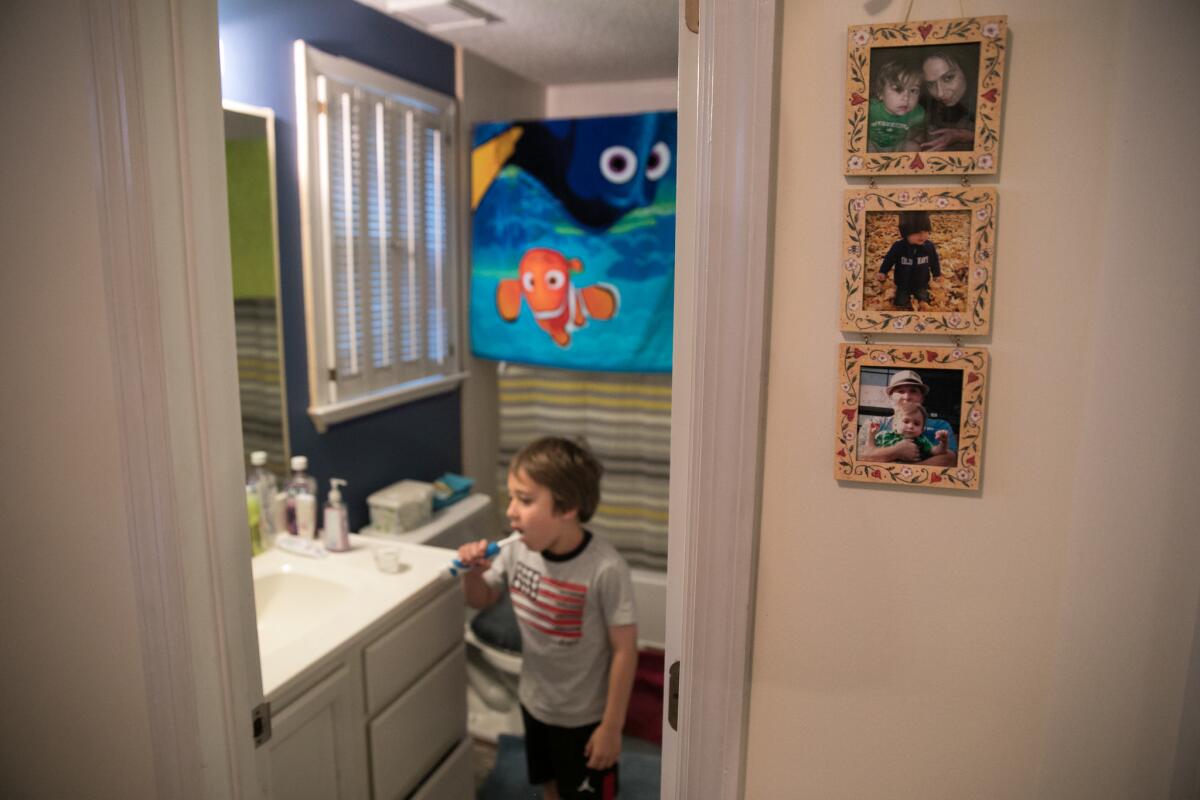
Jason told Cecilia not to worry, that the government wasn’t interested in her.
But she became increasingly fearful, scanning Univision broadcasts and local Facebook pages and showing him stories of people picked up by “la migra” when they were leaving for work or walking their kids to the school bus.
As immigration arrests surged, Cecilia became afraid to take Ashton to the park. She stopped driving. Her hair fell out in thick clumps.
What would happen if they came for her? Cecilia wondered. If they asked for her papers?
For the last few years, the couple had met with ICE once a year to renew Cecilia’s work permit. Under the Obama administration, ICE granted renewable work permits to many law-abiding immigrants who had been in the country at least five years.
But with their next appointment in November 2017, Jason and Cecilia had to decide: Should she go and risk being deported? Or should they skip the meeting, risking the possibility that ICE agents might knock on their door?
Ashton was 4. More than anything, Cecilia wanted to spare him the trauma of watching her be hauled away.
They decided to go to the ICE appointment with a plane ticket and a plan. If you allow us to spend Christmas and New Year’s together, they told the immigration agent, Cecilia would self-deport in January.
They were not sure it would work. As they waited at a cubicle, a woman sobbed as she was given a few moments to say goodbye to her young children. But the ICE agent agreed.
So they roasted a beef tenderloin over Thanksgiving and piled presents under the tree at Christmas. After New Year’s, Jason and Ashton flew with Cecilia to Guadalajara and took an Uber to her family’s home in the rural town of Juanacatlán.
It was Jason’s first time in Mexico and he was shocked by the poverty of her hometown. Stray dogs roamed the dirt roads, and mosquitoes buzzed inside homes with no air conditioning or drinkable tap water. Locals ran tiendas inside their rundown homes.
Unbelievable to him, there was no McDonald’s or Walmart.
Until then, Jason had not really grasped why his wife took the risk of crossing the border for a better life.
But God wanted his family to be together, he felt sure. Eventually, immigration officials would consider that Cecilia was married to an American citizen and had a child in the U.S.
“Mommy will be home soon,” he promised Ashton.
Not long after Jason got back to the U.S., their attorney told him Cecilia was permanently barred from returning.
It should not have been a surprise — Cecilia had lived in the U.S. for nearly two decades after being caught twice illegally crossing the border — but Jason was crushed when the lawyer said there was nothing more she could do. They would have to wait 10 years before they could ask for permission to reapply to enter the country.
Jason could not imagine Cecilia living in Juanacatlán, so they decided she should move to Mérida, the capital of Yucatán state and known as one of Mexico’s safest major cities. Jason’s mother moved from Alabama to Georgia to help care for Ashton.
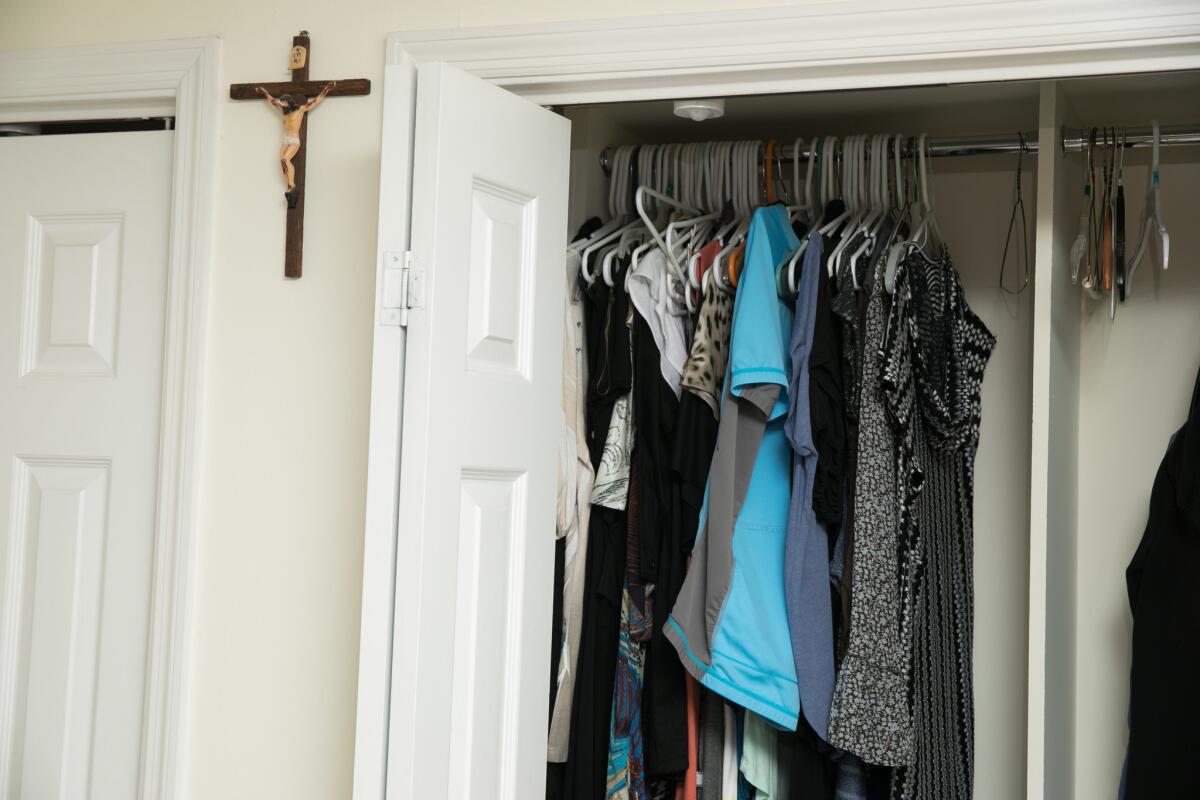
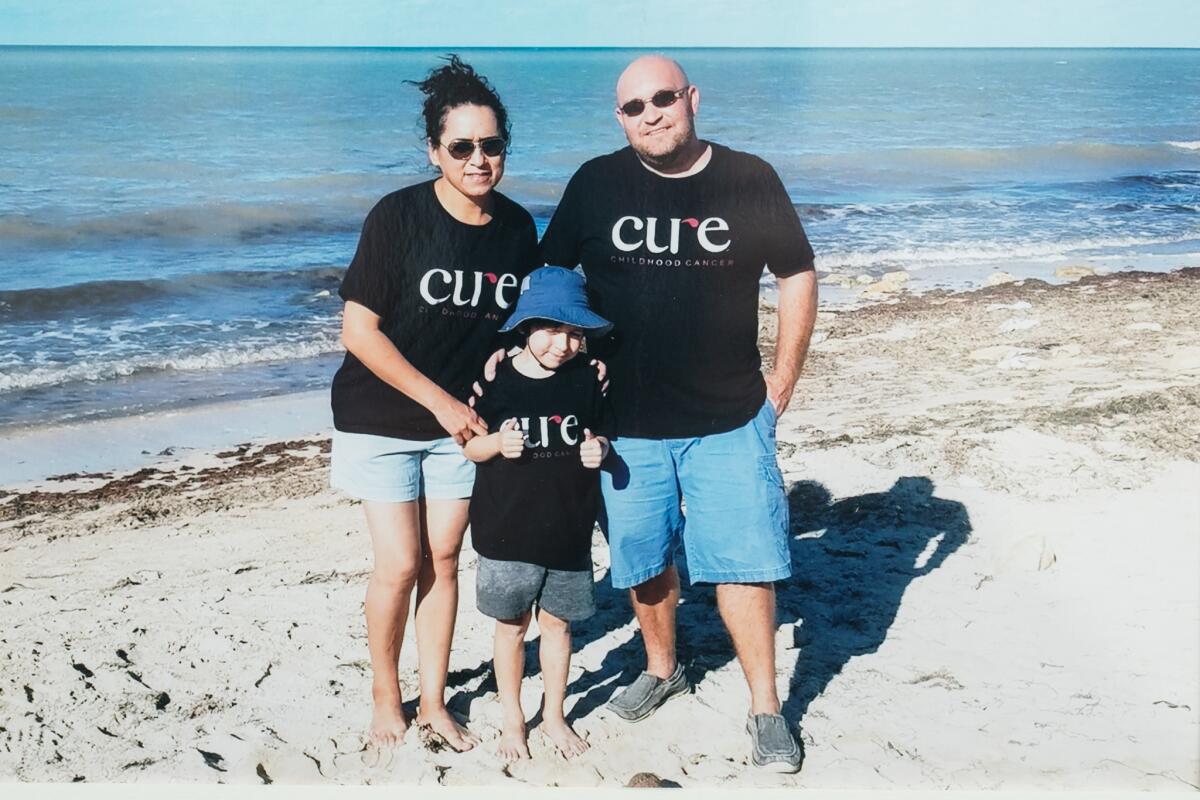
In the summer, Ashton would visit Cecilia while Jason tried to figure out how to bring her back.
But there was a setback in July, not long after Ashton arrived in Mérida.
Cecilia was rubbing lotion on Ashton when she noticed a protrusion under his rib cage. After snapping a picture and texting it to Jason, she took Ashton to a hospital.
Ashton had a Wilms tumor, a cancerous mass in his left kidney the size of a cantaloupe. Jason flew to Mexico and rushed Ashton back to the U.S. for treatment.
After surgery to remove Ashton’s kidney, there was radiation therapy and chemotherapy.
Ashton screamed every time he had blood taken.
“Why isn’t mommy here?” he asked.
“The government doesn’t want her here,” Jason tried to explain. “Mommy messed up years ago and we’re trying to get her back.”
Frantic, Cecilia considered trying to cross the border again. But Jason urged her to follow the law. God will reward us, he said.
They applied for humanitarian parole, assuming everything would be resolved in a few days. Even the most hard-hearted immigration official, they figured, would make an exception for a 5-year-old with cancer.
Nearly two months passed before they got word: Parole was denied.
As a white Trump voter, Jason makes an unlikely immigration activist.
He refers to immigrants as “illegals,” a term many advocates consider dehumanizing. He is indifferent about Trump’s “big, beautiful wall.” He suggests immigrants who have lived in the country without authorization should pay $10,000 fines.
But watching Cecilia miss walking Ashton to his first day of kindergarten or dressing him up as Sonic the Hedgehog for Halloween has pushed him to try to persuade Congress to overhaul immigration laws.
“Without a law change,” he said, “she’s not going to come back.”
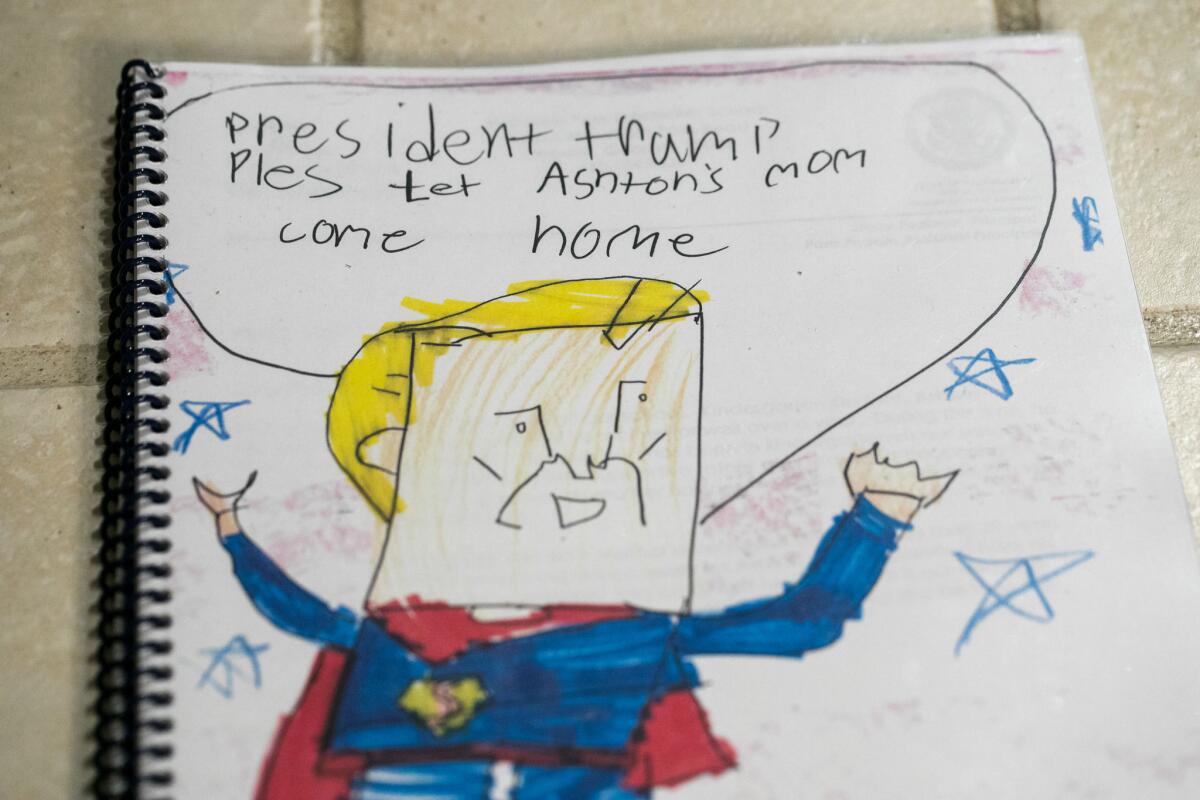
Jason remains hopeful that Cecilia will return. More than 16 months after she left, her blouses, jeans and hoodies still hang in the bedroom closet.
Her Calvin Klein Contradiction perfume sits on the bathroom vanity. Her wooden crucifix hangs on the bedroom wall.
Now that Ashton is in the clear after months of chemotherapy and radiation, Jason is focused on changing the law so that, as he put it in an online fundraiser, “good people like my wife” can return to the U.S. to be with their “American citizen family.”
Immigrants who have a clear criminal record, he believes, should be ranked in order of priority.
“At the top of the list would be immigrants with an American spouse and American children,” he said. “And then go down to maybe an immigrant with an American spouse but no children and then just the children who are illegal.”
Yes, he conceded, such a system would cost money, but that could be offset by requiring immigrants to pay a fine.
“Isn’t it worth it to be humane?” he said. “To not just separate families?”
Sometimes Jason feels like an outlier in the nation’s polarized immigration debate. After 16 months apart from Cecilia, he has yet to meet another U.S. citizen who is married to an immigrant in the country illegally.
“We’re a very small demographic,” he said. “Usually, illegals are married to illegals.”
But Jason’s story is not uncommon. About 1.2 million immigrants who lack legal status — more than 1 in 10 — are married to a U.S. citizen, according to the Migration Policy Institute. Nearly a third have a child under 18 who is a U.S. citizen.
Still, Jason has struggled to win sympathy across the echo chambers of social media.
When Ashton was going through chemotherapy in October, Jason posted pictures on Twitter of his son in a hospital bed, tagging Trump. “Please read this and help my family!” he wrote. “I voted for you because I believed you would be fare to illegals and now my family is suffering!”
Trump did not respond, but others did, dubbing Jason a “hamburger brain” and a “sociopathic monster.”
“Trump doesn’t believe ‘good illegals’ exist,” one commenter wrote. “I feel bad for your boy. I have zero sympathy for you.”
“Why do Republicans lack all compassion until something happens to them directly?”
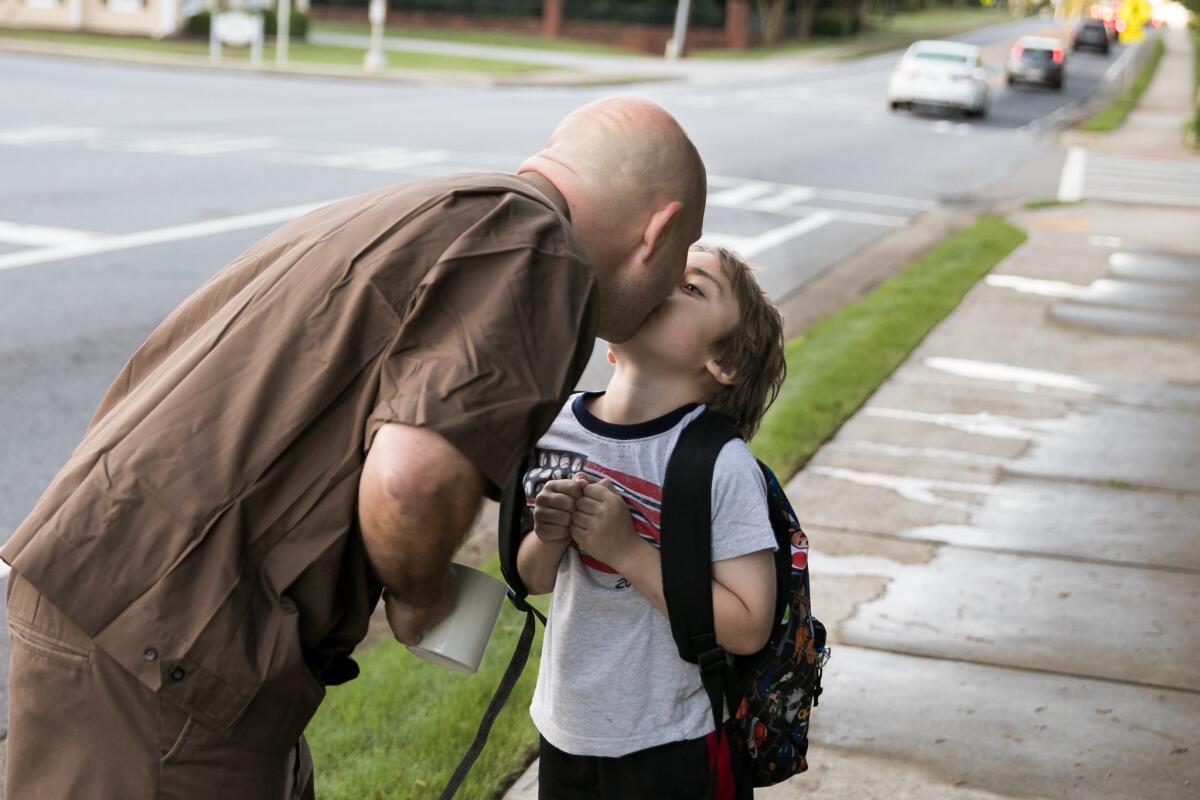
Jason tries not to let the partisan digs get him down, preferring to believe that people just don’t understand.
He probably wouldn’t vote for Trump again, he said. Still, he isn’t really sure that he made a mistake.
Sometimes he feels stupid or duped or betrayed. But then he thinks back to how he didn’t vote for himself personally but for the greater good — for what he sees as the “noble” cause of outlawing abortion.
“Was it a bad decision for my family? Yes,” he said. “Was it a bad decision for our country? I can’t say. Sometimes you can’t just think about yourself. You have to think about the broader picture.… I feel like God will bless my decision.”
Sign up for Essential California
The most important California stories and recommendations in your inbox every morning.
You may occasionally receive promotional content from the Los Angeles Times.







